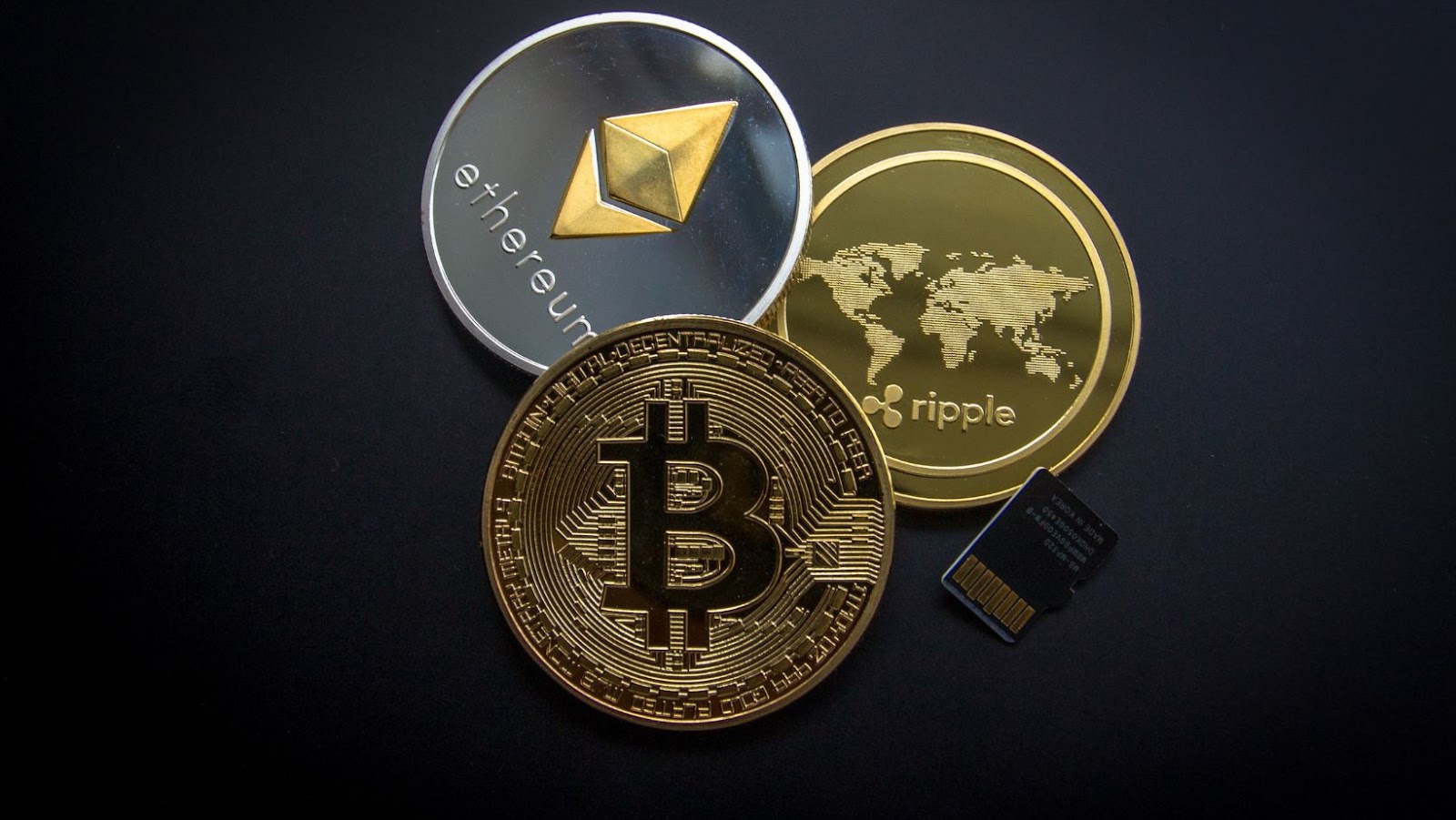Bitcoin is a virtual or digital currency created in 2009 by an unknown person using the pseudonym Satoshi Nakamoto. It is the world’s first decentralized cryptocurrency and a payment system which requires no central authority for it to operate. Bitcoin’s unique technology uses the blockchain, a secure digital public ledger, to store and record Bitcoin transactions. Transactions are made without any middleman, giving individuals full control over their funds with low transaction fees. People can use Bitcoin for almost any type of transaction or purchase that could be done with traditional money, including buying merchandise from online retailers. People can also exchange Bitcoin for cash or use it as savings/investment tool much like gold and other precious metals. Since its inception in 2009, Bitcoin has had a rapid rise in value over time, reaching historic highs of $20,000 USD per coin in late 2017 and then again at around $30-40K USD percoin toward end of 2020/beginning 2021. At its current state, 7000Bitcoin would be worth approximately $240 million US Dollar (USD).
How Does Bitcoin Work?
To understand the concept of Bitcoin, it is important to first understand the fundamentals of how a digital currency works. Bitcoin is a decentralized form of digital currency that functions without 3rd parties such as banks, countries or organizations controlling its value or regulating its supply. The underlying technology used in Bitcoin is blockchain, which serves as an open ledger database consisting of all Bitcoin transactions ever made within the network. Bitcoin works based on a user-to-user (peer-to-peer) protocol that operates without the need for 3rd party intermediaries like banks and government entities. Transactions are conducted directly between users by digitally signing off on the transfer of amount from one wallet to another wallet in record time, making it faster and cheaper than traditional payment methods. Bitcoin also has its own built-in monetary system where each transaction is recorded and kept in order to maintain its credibility of value and security. This system helps to prevent double spending and ensures that inflation levels remain stable as no additional Bitcoins can be created beyond what is programmed into its codebase. What’s more interesting about Bitcoin is that each user is responsible for their coins; thus, no middleman or governing entity can seize anyone’s bitcoins or money.
At an exchange rate of $1 USD = 0.00038 BTC, one bitcoin would currently be valued at roughly 7000 USD ($7000/0.00038).
The Value of Bitcoin
Bitcoin is a digital currency that is quickly gaining popularity and value. As of January 2021, 7,000 Bitcoin is worth almost $389,000 US dollars. This value can fluctuate since the market for Bitcoin is still new and developing. Bitcoin has become an attractive investment option to many and its use as a currency has grown as well.
In this article, we will explore the value of Bitcoin as well as its other uses.

Factors Influencing Bitcoin Value
The value of bitcoin, a decentralized digital currency, is determined by a number of factors. These include its utility as a payment system, demand and supply, governmental regulations and more. Bitcoin has the potential to act as an alternative to regular currencies in various ways. Transfers using the blockchain technology established by Bitcoin can be much faster than traditional banking transactions. Furthermore, transactions made with bitcoins usually carry lower fees than even credit card payments or bank transfers. This potential makes it attractive to many people around the world who are looking for an alternative financial system. The most visible factor that affects bitcoin’s value is its supply and demand on exchanges. When demand increases relative to supply, prices rise; when demand decreases, they fall accordingly. Bitcoin’s decentralized nature ensures that it escapes the control of any single government or central authority, so if one group chooses to increase usage of bitcoin (e.g., a major retailer accepting it as payment), others can follow suit without any resistance from authorities. Another important factor that influences bitcoin’s value is governmental regulations in certain jurisdictions where it is widely used – such as China and Japan – coming down hard on cryptocurrency exchanges as well as companies using blockchain technology for information exchange. Such regulations make it difficult for individuals and businesses alike to use bitcoin as a currency or secure their investments in it, causing investors to fear that their money will be lost if regulatory bodies succeed in clamping down on the crypto market at any time. Finally, media coverage also plays an important role in determining the value of Bitcoin. Good news about stability, new applications and increasing user base drive up prices while negative events such as hacking scandals or harsh regulation push them down.

How Much is 7000 Bitcoin Worth
Thanks to its digital nature and near-limitless supply, it is difficult to determine the exact value of a bitcoin. The market price of BTC fluctuates substantially, as it is subject to the forces of supply and demand. The only certainty is that digital currencies have enhanced traceability and are accessible to anyone with an online connection, no matter their location or income level. So how much is 7000 Bitcoin worth? This depends on a variety of factors such as market capitalization and current market price. At the time of writing, 7000 Bitcoin (7000BTC) would be worth approximately $59,478,550 USD. However, this value could easily fluctuate due to market status at any given moment in time.
It’s important to remember that both Bitcoin’s value and its exchange rate against other currencies can rapidly change over short periods of time due to variable market conditions such as:
- Speculation among investors
- Regulatory approval or disapproval from governments around the world
- Natural disasters or political upheaval in certain countries who largely depend on Bitcoin for their banking needs.
As a result, it is best for serious investors planning to accumulate large amounts of Bitcoins over years instead of months or weeks in order to reduce risk related volatility in pricing.
Advantages And Disadvantages of Bitcoin
Bitcoin has emerged as a powerful and unique form of digital currency that continues to gain traction as a legitimate investment option. Its use has grown exponentially in recent years as individuals and businesses alike have explored the potential of this decentralized cryptocurrency.
Despite its growing popularity, there are both advantages and disadvantages to using Bitcoin. In this article, we’ll break down the pros and cons of investing in Bitcoin.
Advantages of Bitcoin
Bitcoin is a decentralized digital currency, meaning it only exists electronically and not in physical form. It is the first example of a cryptocurrency, which is a new form of digital asset that has rapidly gained popularity due to its low transaction fees, fast processing speeds and increased privacy compared to more traditional forms of payment.
Advantages of Bitcoin:
- No third-party interference: Unlike traditional fiat currencies, Bitcoin transactions are peer-to-peer with no third party involvement. This allows for greater control over personal finances and eliminates the need for banks or other intermediaries.
- Low transaction fees: When compared to other payment methods like debit cards, credit cards and bank transfers, Bitcoin transactions have much lower fees thanks to their decentralized nature. As the number of Bitcoin transfers increase so does the convenience which leads to greater savings for customers.
- Highly secure: The advanced cryptographic protocols that underpin Bitcoin’s framework make it extremely difficult for malicious actors to gain access or control over user funds or accounts. In addition, users can secure their wallets with two-factor authentication or multi-signature protocols for added security.
- Increased privacy: Since all transactions occur on a distributed public ledger called the blockchain, no personally identifiable information needs to be shared with merchants during purchases. This makes it much more difficult for businesses or third parties to track an individual’s purchases or activities online which increases user privacy overall.

Disadvantages of Bitcoin
Bitcoin has quite a few advantages, but it can also have some downsides when compared to other payment methods. There is a risk that users may lose their cryptocurrency through hacking and security breaches. Bitcoin transactions are irreversible, which means that once the money is sent, it cannot be recovered. Additionally, Bitcoin is not insured through any government agency and its value fluctuates substantially. This can make it difficult to estimate how much actual money would be needed to purchase one unit of Bitcoin as its value constantly changes against traditional currencies such as the U.S. dollar or the Euro.
Another potential downside of Bitcoin is its limited use in most online merchants’ websites and physical stores around the world. Although many large retailers do accept cryptocurrency payments, there are still many businesses that do not take it seriously due to its price volatility or other reasons. Moreover, since Bitcoins exist only in digital form, so there is always a possibility of hackers and scammers stealing them from users or their computers could be corrupted by malicious software programs. Users must also constantly worry about the safety of their hard wallets where they store their tokens because if they lose access to those wallets they could lose all of their Bitcoins forever; however, users can create backups using seed phrases which allow them to reclaim their bitcoins if needed. Lastly, blockchain networks can become congested at times due to high usage making transactions slow and expensive on occasion.
